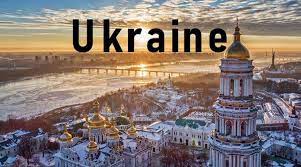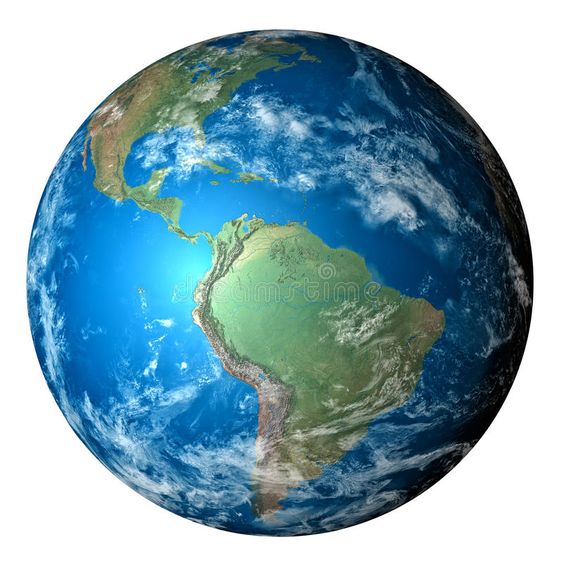
For a start, Moscow has agreed to continue negotiations.
By Tom Arms
There is a glimmer of light the end of the Ukrainian tunnel. The messages emanating from Moscow have shifted from unrestrained militant threats to militant threats with the occasional conciliatory murmur.
For a start, Moscow has agreed to continue negotiations. Most encouraging was an interview Foreign Minister Sergei Lavrov gave to Russian radio stations on Friday. “If it depends on Russia,” he said, “then there will be no war. But we also won’t allow our interests to be rudely ignored, to be trampled.”
Of course, the only person whose opinion really matters is President Vladimir Putin, and he is the personification of Churchill’s definition of Russia as “a riddle, wrapped in a mystery, inside an enigma.”
Attempts to fathom the inner workings of the Russian leader’s mind seem destined to failure as one of his clear aims is to keep the US-led Western Alliance guessing and off-balance in order to constantly retain the initiative.
One possible guide to Putin’s thinking is the Russian media. The state broadcaster Russian TV (RTV) is sticking to a bellicose line. The Ukrainians are “Nazis” threatening to attack “peace-loving” Russian speakers in the Eastern part of Ukraine. Little is reported about the 125,000 troops on the Ukrainian border but when they are referred to, the commentators stress the Kremlin position that Moscow has the right to move its forces whenever and wherever it wants within Mother Russia.
A better indication is what is being written by Russia’s leading foreign policy analysts. Former diplomat Veronika Krashenninikova, is the leading foreign affairs expert on the Supreme Council of Putin’s United Russia Party. This week she wrote in Literaturnaya Gazeta that “Moscow has already achieved unprecedented results. It forced a discussion of its agenda…and did not allow its ‘partners’ to dodge the issues. It restored dialogue on arms control and measures for military transparency.”
One of the reasons that Putin may be hesitating is that the result of the invasion option is far from a foregone conclusion. The Russian military is six-time the size of the Ukrainians, but Kiev has the home ground advantage and is capable of fighting a fierce and drawn out partisan war. Also, an invasion does not necessarily have popular Russian support. A recent poll by the Russian polling agency VTsIOM revealed that 53 percent opposed an escalation of the fighting in Ukraine.
One reason for lack support on the streets of Moscow is that the wider Russian public would be hit hard by proposed sanctions. Putin has failed to deliver the economic growth that the 143 million Russian people need. The average salary in Russia is less than a third that of an EU worker and it dropped ten percent between 2019 and 2020. A further drop—along with body bags– will hit hard at the president’s popularity ratings.
There is also the issue of NATO solidarity. The alliance’s 30 members are committed to each other’s defence and this involves a coordinated diplomatic response. But at the same time they have their own national interests. At the moment it seems that the US and Britain are on the hardline end of the NATO spectrum (along with most of the East European allies). France and Germany are more conciliatory.
The Russian press paints the differences as a major rift within the Alliance. This is an exaggeration. The positions are not so much a split as a case of the two groups acting out a variation of the good cop bad cop routine. The Germans have steadfastly refused to send any weapons to Ukraine but have shelved the Russia’s Nordstream2 gas pipeline. Britain has dispatched anti-tank weapons to Kiev and President Biden has placed 8,500 US-based troops on heightened alert.
France’s President Emmanuel Macron has held his own Zoom talks with President Putin, partly in his capacity as the current president of the European Council, partly as a signatory to the Minsk Two Agreement with Russian on Eastern Ukraine and partly because he is in the middle of a presidential election campaign.
A spokesman for the Elysee Palace said that France and Germany did not think that the danger of war was as imminent as Britain and America believed. This message will likely be carried to Washington by German Chancellor Olaf Scholz when he meets Biden at the White House on 7 February.
Another factor giving Putin cause for further reflection is American moves to protect European energy supplies. Europe, along with the rest of the world, is suffering an energy crisis as the global economy adjusts to a post-pandemic gas and oil shortage. Oil prices this week hit a seven-year high of $90 a barrel. Russia supplies more than a third of Europe’s natural gas. The Nordstream2 pipeline would increase Russian gas exports to Europe by another third.
One of Putin’s aces was his stranglehold on Europe’s energy consumption. The shelving of Nordstream2 has weakened that hold. The US is now busy negotiating a diversion of liquefied natural gas tankers from Asian markets to Europe to further reduce European dependence on Russia. The main sources are the US, Qatar and Libya.
Of course, Putin may decide to simply put his dreams of a new Russian empire on hold for a while. He has made his wishes known; forced a reaction from the West; sowed a few seeds of discord; rattled his tank turrets; and regained a seat at the top table with threats.
If that is the case then the light at the end of the Ukrainian tunnel is definitely the oncoming Russian train and it will either keep rolling, pause, remain on the tracks, and start moving forward at another auspicious moment.
- It is time to appoint another Justice to America’s Supreme Court. The new vacancy has been created by the resignation of liberal 83-year-old Justice Stephen Breyer. President Joe Biden has responded by announcing that he will nominate the first-ever African-American woman to the court. But will she win the approval of the Senate which is split 50/50 but with the casting vote of Vice President Kamala Harris tipping it into the Democratic camp? It is not a foregone conclusion. If the Republicans stand firm on blocking Democratic presidential nominations (as they have done in the recent past) then Biden may chalk up another failure. It will take only one Democrat to break ranks. Senators Joe Manchin and Kyrsten Sinema, have proven that is an only too real possibility. If Biden does get his way then there are half a dozen top contenders: Keranji Brown Jackson, Leonora Kruger, Michelle Childs, Candace Jackson-Akiwumi, Eunice Lee and Sherrilyn Ifill. Some legislators have already taken issue with the president basing his decision on race and gender. But each of the likely candidates has impeccable liberal Democratic Party credentials. None of them, however, will change the political direction of the court. Donald Trump’s three appointments mean that there will continue to be twice as many conservatives as liberals on the Supreme Court.
- Words spoken by top politicians matter, even if they are limited in number and confined to a few pleasantries at a public occasion. That is why Beijing has taken offence at a verbal exchange between Vice President Kamala Harris and her Taiwanese counterpart William Lai. The two exchanged words at the recent inauguration of Honduran President Ximara Castro. The White House said it was a brief conversation in which neither China or Taiwan were mentioned. In fact, they didn’t talk about anything in Asia. Instead, said the White House, Ms. Harris briefly mentioned America’s immigration policy and its “root causes” strategy aimed at curbing migration from Central America. Taiwan’s Central News Agency was even more circumspect—“It was a simple greeting,” the agency reported. The brevity of the conversation was irrelevant complained Beijing. The fact is that the Number Two in America’s political hierarchy implicitly recognized the political existence of Taiwan. This is unacceptable to the Chinese. The cursory exchange was not an accident. It was almost certainly arranged well in advance and American diplomats would have pointed it out to reporters. It was meant to annoy Beijing—and keep them on their toes.
- British news continues to be dominated by “partygate”, which could be acting as a convenient cover for UK-EU talks on resolving the dispute over Northern Ireland. Foreign Secretary Liz Truss has taken over responsibility for Brexit talks from hardliner Lord David Frost and appears to be taking a more conciliatory line. Brussels likes Ms. Truss. Unlike Lord Frost, she is not a Brexit ideologue. She voted to remain in the EU and is known as a dealmaker. But she still has problems. One is that the Prime Minister may use the EU scapegoat card to deflect attention from his domestic problems. Then there is the fact that the EU negotiators may shy away from concessions because they believe Boris Johnson is about to be ejected from Downing Street. Ms Truss’s past pro-EU positions has also raised concern about her among Brexiteering Conservative MPs in the European Research Group as well as within Northern Ireland’s Democratic Unionist Party. Ms Truss and EU negotiator Maros Sefcovic have said that they want to resolve the long-running dispute over the Northern Ireland Protocol by the end of February in order to dispense with it before May elections to the Northern Ireland Assembly. If they fail to do so, then the danger is that the election will become a de facto referendum on whether Northern Ireland remains in the Single Market and Customs Union—a sort of Brexit referendum mark two but confined to Northern Ireland.
- It has been one year since the military coup in Myanmar. Under the leadership of Junta chief General Min Aung Hlaing, thousands have been thrown into prison, the media suppressed, villages razed to the ground and an estimated 400,000 are now officially classified as displaced persons. The economy is in free fall. The currency has been devalued by more than 60 percent against the dollar and the country’s schools are effectively closed. The rest of the world has largely forgotten Myanmar. There are sanctions against the generals and its leadership is banned from meetings of the Association of Southeast Asian Nations (ASEAN), but these measures have had little effect as the country drifts towards failed state status and splinters along a multitude of ethnic divisions. Western countries appear reluctant to become involved. It is another faraway country whose fate has little or no meaning to domestic audiences. It does, however, attract the interest of neighboring giants China and India who are jockeying for influence in Myanmar and who may come to blows over the future of the Southeast Asian nation. That would interest the West.
- The battle against Jihadists in the Sahel region of West Africa suffered a major blow this week with a military coup in Burkina Faso. The West is operating one of the world’s biggest anti-terrorism operations in the Sahel Region. France has more than 5,000 troops operating there and there are additional forces from Britain, the US, Spain, Italy and the Netherlands. The UN has 15,000 peacekeepers in Mali. In Burkina Faso about seven percent of the population—1.5 million people—have been displaced. Nearly 10,000 have been killed. A key element in the West’s strategy for success is building sustainable democratic governments to counter the growing threat of Jihadists affiliated with IS and Al Qaeeda. Military coups undermine that strategy. Mali has suffered two in as many years. The military takeover in Burkina Faso—the eighth since independence from France in 1960– has compounded the problem and made it more difficult for the West to neutralize the Jihadist threat.
[author title=”Tom Arms” image=”https://sindhcourier.com/wp-content/uploads/2021/05/Tom-Arms-Journalist-Sindh-Courier.jpg”]Tom Arms is Foreign Editor of Liberal Democrat Voice and author of “America Made in Britain.”[/author]
